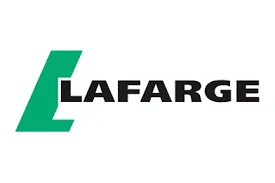PMI’s New Certification Provides Tools For Next Generation of Construction Leaders

Project Management Institute (PMI), the world’s leading association for project professionals, has announced a series of seven courses, leading to the Construction Professional in Built Environment Projects (CPBEP) certification to widen skills building and education programs to meet the new demands on the industry.
It is PMI’s first industry-specific solution tailored for construction professionals.
PMI created the certification in collaboration with construction industry leaders and consultations with project managers who face the twin challenges of balancing technology and talent.
Both Lean Construction Institute and Construction Industry Institute were integral to developing the certification along with Saudi Aramco, U.S. Department of Energy, DPR Construction and BHP amongst others.
The construction industry, like many others, is seeing a rise in new technologies such as drones and artificial intelligence, mobile apps, cloud communication, and data management.
Their adoption has meant a need for a separate set of skills to complete projects successfully. Add a diverse workforce, and a new skills landscape begins to emerge.
Companies today need professionals with technical as well as power skills to navigate the changing workplace.
George Asamani, Business Development Lead, Africa, PMI, says, “We see improvement in technology adoption, but technology is just an enabler. It’s still people and their skills that are critical to improving project performance.”
In a recent survey where PMI interviewed more than 40,000 global Project Management Professional (PMP) certification holders in the construction industry it found that 70% construction projects experience scope creep, and 73% of such projects ended over budget.
Moreover, it also found that 72% of construction projects often experienced project delays.
In another research, titled “Most critical factors responsible for cost overruns in Nigeria building construction industry”, the Federal University of Technology’s Oluyemi-Ayibiowu, B. D., Aiyewalehinmi, O. E., and Omolayo, O. J. found that cost overruns is a major problem facing the local construction industry.
They opined that cost overruns led to numerous negative effects such as project delay, abandonment and poor-quality delivery.
Based on their data, six most severe factors of construction cost overrun were identified as: risk and uncertainty related factors (89.5%); lack of financial power by clients (88.5%); weak regulation and control (88.2%); project fraud and corruption (82.6%); variation of prices (81.3%) and indiscriminate change in design/works (80.1%).
It is therefore not surprising that construction, which contributes 13% to the global GDP and is the biggest, has not been performing well, having clocked only 1% annual growth over the past two decades.
That’s not all; according to PMI’s Pulse of the Profession report, the sector’s wasteful expenditure sits at $127 million for every $1 billion spent on projects.
This amounts to over $1.6 trillion wasted annually due to capital projects not being delivered on time or within budget.
“But this doesn’t have to be the industry’s future. With more than 50 years in the project management industry, PMI is uniquely positioned to help equip professionals with the skills needed to transform the surging industry through developing these innovative learning methods and practices,” adds Asamani.
The sector employs 7% of the world’s working population.To be eligible for the certification, individuals need three or more years of experience as a project manager, lead or contributor in the construction / built environment.
The courses can be taken in any order and present an opportunity for professionals to focus on topics they are most driven to explore. Learners can either complete individual courses and earn specific micro-credentials or complete all courses in preparation for the capstone exam.
Three of the seven courses offer micro-credentials upon completion of a post-course exam.
The micro-credentials award a digital badge to show the user’s mastery of the content. Each course explores a specific area of construction project management, such as communication and risk management.
The Federal government’s plans to spend over N3,50 trillion on infrastructure and human capital development in 2022 is a clear indicator of its farsightedness.
For the construction industry its work is cut out if it wants to participate meaningfully in these projects – firstly accelerate its rate of technology adoption and secondly focus on upskilling employees, particularly project managers responsible for scoping, scheduling, and budgeting.
“Construction is a demanding industry subject to the vagaries of weather, supply chain disruptions, and a host of other often uncontrollable variables. It requires a well-versed project manager to bring the work in on time and within budget,” says Asamani in conclusion.













